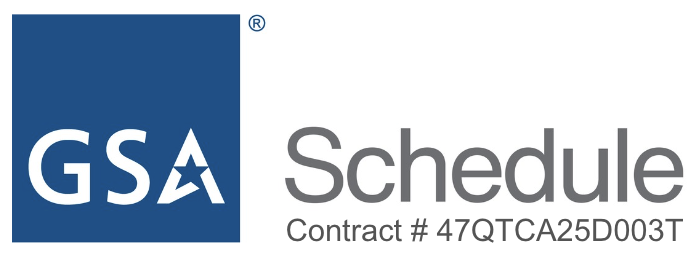
Self-awareness has traditionally been portrayed as an internal journey—understanding your own thoughts, emotions, and belief systems through practices like introspection and meditation. While this internal focus is valuable, it represents only half of true self-awareness. To achieve balance and reach your full potential, you need to develop both internal and external self-awareness. This comprehensive approach creates a foundation for personal growth that can transform every aspect of your life.
Understanding Complete Self-Awareness
True self-awareness consists of two complementary components that work together to provide a complete picture of who you are and how you move through the world:
Internal self-awareness involves understanding your values, purpose, passions, needs, emotions, beliefs, strengths, and weaknesses. This requires introspection, mindfulness, meditation, and sometimes guidance from coaches or therapists. Internal awareness helps you align your actions with your authentic self and make decisions that honor your core values.
External self-awareness focuses on understanding how others perceive you, including your impact on others, their reactions to you, and your behavioral patterns. This requires honest feedback and objective observations from others. External awareness helps you navigate social situations more effectively and build stronger relationships.
Think of these two aspects as like mini-golf versus traditional golf—they share basic principles but require different skills and approaches. While both involve putting and aiming for 18 holes, they demand distinct techniques and mindsets. Similarly, internal and external self-awareness require different practices but work toward the common goal of understanding yourself more completely.
The Limitations of Internal Focus Alone
Many personal development approaches emphasize internal awareness almost exclusively, leading to an incomplete self-understanding. When we rely solely on introspection, we miss crucial information about:
- • How our communication style affects others
- • Behavioral patterns we cannot see in ourselves
- • The gap between our intentions and our impact
- • Blind spots in our self-perception
- • How we show up differently in various contexts
Without external awareness, we risk developing a distorted self-image that doesn't match how we appear to the outside world. This disconnect can lead to repeated interpersonal challenges and missed opportunities for growth.
How to Enhance Your External Self-Awareness
1. Actively Seek Feedback
Though it can be uncomfortable, asking for feedback is essential to understanding how others perceive you. Here's how to make this process more productive:
- • Ask simple, direct questions that can yield clear insights, such as "How would you describe me?", "What do you think I do well?", or "What do you think I need to work on?"
- • Create a safe space for honest feedback by responding non-defensively and expressing genuine appreciation for others' perspectives
- • Seek input from diverse sources—family members, close friends, colleagues, and even acquaintances can offer different but valuable viewpoints
- • Consider timing—asking for feedback after specific projects or interactions can provide context-specific insights
- • Keep a digital record of feedback responses on your phone. Having objective data is particularly valuable if you struggle with self-worth, perfectionism, or anxiety, as it helps separate facts from emotional interpretations
2. Develop Your Ability to "Read the Room"
While we can't access others' internal thoughts, we can learn to interpret social dynamics through observation:
- • Notice how different groups (like management versus peers) respond to the same actions from you
- • Compare how individuals respond to different approaches you take (such as asking for help versus demanding it)
- • Observe how people respond to others performing the same actions as you
- • Pay attention to subtle cues in body language, facial expressions, and tone of voice
- • Look for patterns across multiple interactions rather than making assumptions based on isolated incidents
3. Practice Perspective-Taking
Developing the ability to see situations from others' viewpoints enhances external self-awareness:
- • Before important conversations, take a moment to consider what the other person might be thinking, feeling, or needing
- • When conflicts arise, try to understand the situation from the other person's perspective before responding
- • Regularly ask yourself how your actions might be perceived by others with different backgrounds, values, or communication styles
- • Use empathetic imagination to consider how your behavior affects those around you
4. Work with a Coach or Mentor
Professional guidance can accelerate your development of external self-awareness:
- • A skilled coach can provide objective observations about your communication patterns and interpersonal dynamics
- • Mentors who have observed you in professional settings can offer insights about how you're perceived in those contexts
- • Group coaching or leadership programs often include 360-degree feedback mechanisms that gather perspectives from multiple sources
Balancing Internal and External Awareness
The most powerful approach to self-awareness integrates both internal and external perspectives:
- • Use external feedback to identify areas for internal reflection
- • Check internal insights against external perceptions
- • Notice discrepancies between how you see yourself and how others see you
- • Recognize that neither perspective alone represents the complete truth—integration is key
The Path to Balance
Developing both internal and external self-awareness brings tremendous benefits. Though receiving feedback may initially feel uncomfortable, pushing through this discomfort unlocks new levels of personal growth and potential.
By cultivating both perspectives, you'll gain a more complete understanding of yourself and create more harmonious relationships with others. This balanced approach allows you to:
- • Communicate more effectively across different contexts
- • Make career and life decisions that honor both your values and practical realities
- • Build deeper connections based on authentic understanding
- • Resolve conflicts more constructively
- • Adapt your approach when necessary without compromising your core self
The journey to complete self-awareness takes courage—the courage to look inward honestly and the courage to hear how others perceive you. But this balanced understanding ultimately leads to a more authentic, effective, and fulfilling life. By embracing both dimensions of self-awareness, you create the foundation for reaching your highest potential in all areas of your life.
More for Your Mental Toolbox

Beyond the Winter Blues: Managing Seasonal Affect Disorder (SAD)
Seasonal Affective Disorder (SAD) causes mood shifts in fall and winter. Boost your mood with exercise, light therapy, cozy spaces, and a steady sleep routine.
Read more →
The Psychology Behind Doomscrolling: Why We Can't Stop and How It Affects Our Mental Health
Doomscrolling traps us in anxiety loops driven by social media. It impacts sleep, mood, and focus—but setting small boundaries can help break the cycle and restore calm.
Read more →








